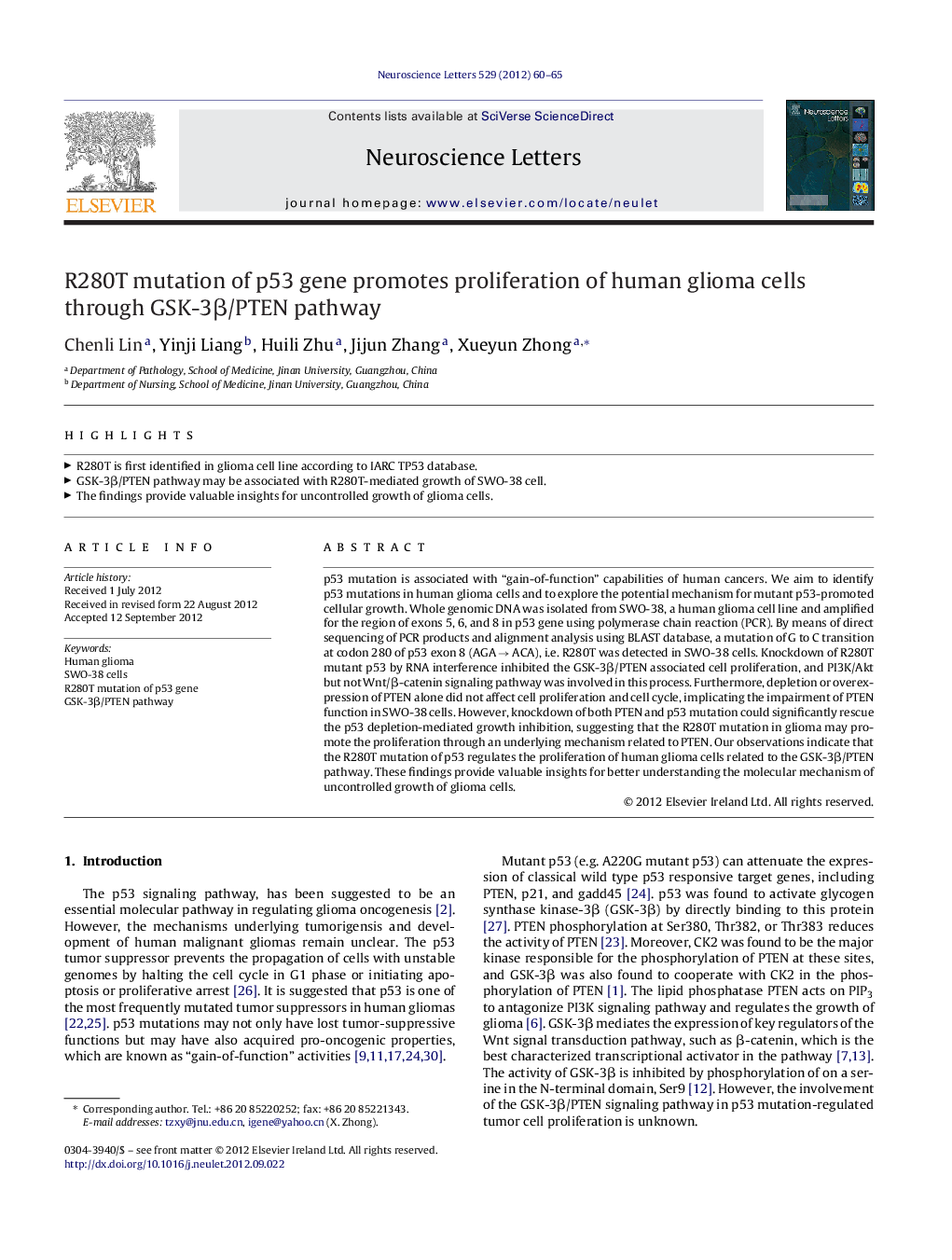| Article ID | Journal | Published Year | Pages | File Type |
|---|---|---|---|---|
| 6283839 | Neuroscience Letters | 2012 | 6 Pages |
p53 mutation is associated with “gain-of-function” capabilities of human cancers. We aim to identify p53 mutations in human glioma cells and to explore the potential mechanism for mutant p53-promoted cellular growth. Whole genomic DNA was isolated from SWO-38, a human glioma cell line and amplified for the region of exons 5, 6, and 8 in p53 gene using polymerase chain reaction (PCR). By means of direct sequencing of PCR products and alignment analysis using BLAST database, a mutation of G to C transition at codon 280 of p53 exon 8 (AGA â ACA), i.e. R280T was detected in SWO-38 cells. Knockdown of R280T mutant p53 by RNA interference inhibited the GSK-3β/PTEN associated cell proliferation, and PI3K/Akt but not Wnt/β-catenin signaling pathway was involved in this process. Furthermore, depletion or overexpression of PTEN alone did not affect cell proliferation and cell cycle, implicating the impairment of PTEN function in SWO-38 cells. However, knockdown of both PTEN and p53 mutation could significantly rescue the p53 depletion-mediated growth inhibition, suggesting that the R280T mutation in glioma may promote the proliferation through an underlying mechanism related to PTEN. Our observations indicate that the R280T mutation of p53 regulates the proliferation of human glioma cells related to the GSK-3β/PTEN pathway. These findings provide valuable insights for better understanding the molecular mechanism of uncontrolled growth of glioma cells.
⺠R280T is first identified in glioma cell line according to IARC TP53 database. ⺠GSK-3β/PTEN pathway may be associated with R280T-mediated growth of SWO-38 cell. ⺠The findings provide valuable insights for uncontrolled growth of glioma cells.
